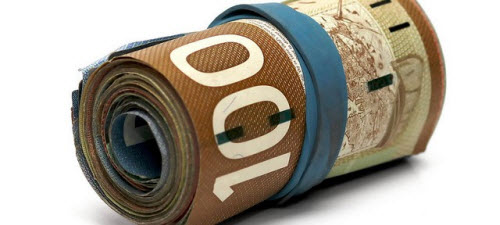What are GICs and how do they work

A GIC (guaranteed investment certificate) is a safe and secure investment with very little risk. You don’t have to worry about losing your money because it is guaranteed.
A GIC works like a savings account in that you deposit money into it and earn interest on that money. The difference is that you need to leave your money in a GIC account for a specified period of time. If you take it out early, you may have to pay a penalty – depending on the type of GIC you own.
When you buy a GIC, you are agreeing to lend the bank or financial institution your money for a specified number of months or for up to 5 years. In exchange, your money will earn interest. The longer the term, the more interest you earn. At the end of the term, you get the entire amount you deposited plus the interest.
Things you need to know about GICs
- You need to invest at least $500 in a GIC
- Generally there are no fees with GICs
- Most GICs pay a fixed rate of interest for a set term (6 months, 1 year, 2 years or up to 5 years) and the term ends on the maturity date - the longer the term, the higher the interest rate
- Some GICs offer variable interest rates
- Interest on your GIC may be paid monthly, once a year or on the maturity date
- If you need to get your money back before the maturity date, you may have to pay a penalty depending on the type of term purchased. Funds in a non-redeemable term are generally locked in until maturity unless there are qualifying circumstances
- Some GICs — called cashable or redeemable GICs — do not charge a penalty if you need to get your money out early, but the interest paid is lower
- Your money is protected through the Canada Deposit Insurance Corporation (CDIC) – but only for terms of 5 years or less and only on Canadian funds
- You can hold your GICs in registered investment accounts like RRSPs, RRIFs and TFSAs
- If you hold your GICs outside of your RRSPs, RRIFs or TFSA – you will be taxed on the interest you earn
Three important considerations for your GIC
1. Can you afford to have your money locked in for a term?
If there is a chance that you will need your money early, consider how early you might need it. If you are planning a major purchase in the near future, maybe 6 months is just right. Or perhaps you can wait for 1, 2 or up to 5 years.
Choose a term that fits your investment goals, but won’t leave you strapped. You want to avoid paying penalty fees if possible.
2. Do you want a fixed interest rate or a variable interest rate?
Most GICs pay a fixed interest rate, which means you’ll know how much interest you'll get back at the end of the term. GICs with a variable interest rate do not give you a guaranteed rate of interest at the end of the term because they are based on market fluctuations. You may earn more, but then again you may earn nothing at all.
3. Do you need regular income from your GICs?
There is a way to invest in GICs that will provide some regular income and give you access to your money on an on-going basis. You can:
- Buy a GIC that makes regular interest payments – Ask about a GIC that automatically pays interest each month, rather than at the end of your term.
- Ladder your GICs – Buy GICs that mature at different times. For example: If you have $5,000 to invest, put $1,000 into a 1-year GIC, $1,000 into a 2-year GIC and so on. That would give you $1,000 of principal maturing every year for 5 years. If you don’t need the money, you can reinvest it into another GIC, in whatever term you want.
Are there any risks to buying GICS?
Even though GICs are a low-risk investment, there are certain factors that could derail any money-making potential.
- Your GICs may not keep pace with inflation – Regular GICs have a relatively low rate of return, which means they may not keep up with inflation.
- GICs with variable interest rates offer no guarantee of return beyond your principal - GICs linked to the stock market pay a variable interest rate that is based on how well the market performs. But the risk is greater. And you won’t know how much interest you’ll receive at the end of the term. You could make less than a fixed-rate GIC – or nothing at all. While your initial investment amount is guaranteed, there is no guarantee that your GIC will make you additional money.
- You will be taxed on your interest earnings – unless you hold your GICs in your RRSPs, RIFFs or TFSAs.
- Your GICs are not protected or guaranteed if:
- They are U.S. GICs
- You bought them anywhere other than a major Canadian Bank or credit union
- The term is greater than 5 years
Looking for more information on GICs? Talk to your Western Financial Group advisor today.



